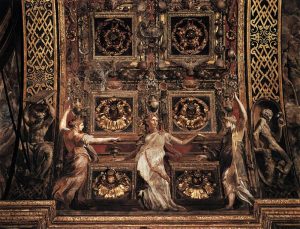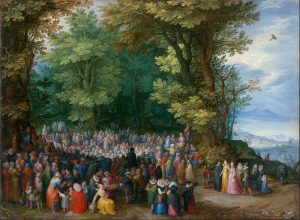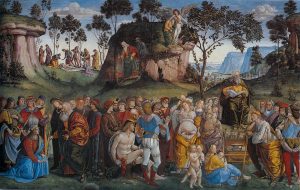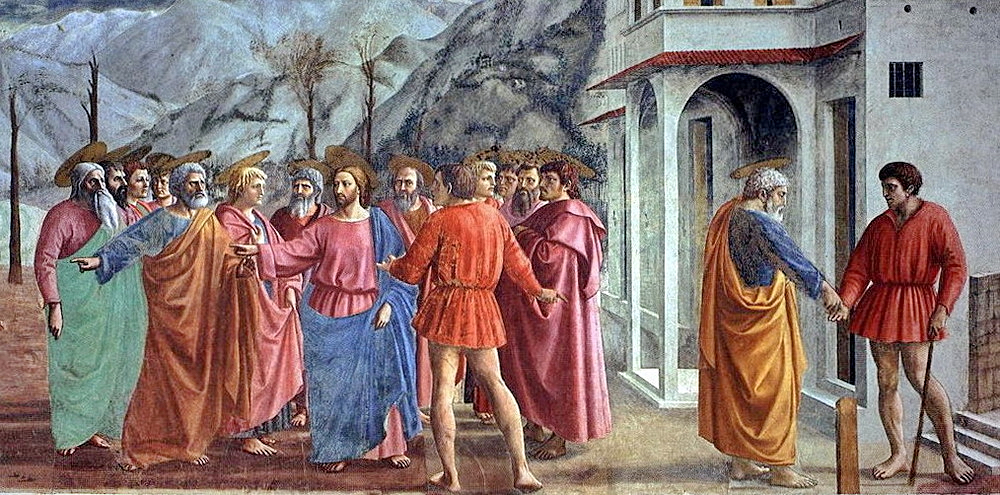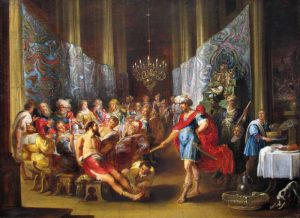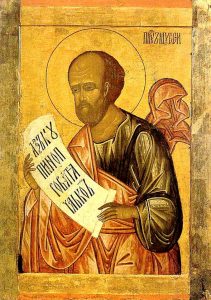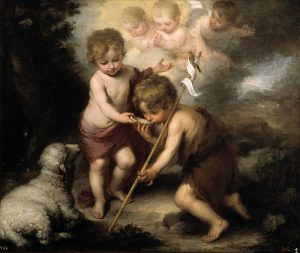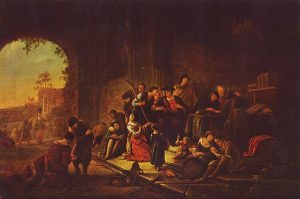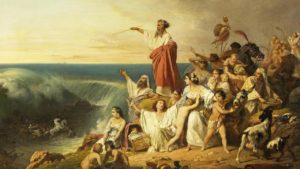Thoughts on Sunday’s Lessons for Nov. 26, 2023 (Christ the King A)
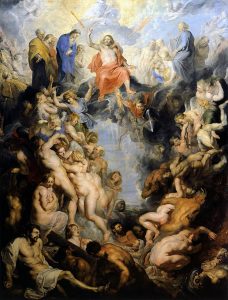
The Last Judgment (1617), altarpiece, oil painting on canvas by Peter Paul Rubens (1577-1640). Alte Pinakothek, Munich, Germany. (Click image to enlarge.)
First Reading (both tracks): Ezekiel 34:11-16, 20-24
Now we celebrate the last Sunday of Pentecost. We join other Christian denominations in celebrating the feast of Christ the King, or the Reign of Christ, this day; but it’s an unofficial celebration, not included in the Book of Common Prayer’s calendar. This aversion may trace back to the American Episcopal church having forsworn earthly kings when our ancestors separated from the Church of England after the Revolutionary War. Sunday’s readings, however, show Jesus Christ is a different kind of king: not a traditional patriarch but a loving shepherd. Both Lectionary tracks combine to present Ezekiel’s prophecy to Israel in exile, praying for a new King David in a new Jerusalem. This new shepherd will bring home and strengthen the sheep who have suffered, while destroying the fat and strong sheep that bullied and scattered them.
Psalm (Track One): Psalm 100
Both Lectionary tracks for Christ the King sing out joy and praise for God, our maker and protector, in verses that are also provided for use in Morning Prayer. Track One is the Jubilate, a call for God’s people and all God’s lands to serve the Lord our God with gladness and song. We are the protected sheep of God’s pasture, joyously singing thanksgiving and praise for God’s everlasting mercy that endures from age to age.
Psalm (Track Two): Psalm 95:1-7a
This hymn will surely sound familiar, too. We recite it or chant it often as the Venite in Morning Prayer. These verses sing out unalloyed worship and praise for the creator and protector of all things, and, in harmony with today’s readings, both king of kings above all gods and loving shepherd who cares for us, the protected sheep of God’s hand.
Second Reading: Ephesians 1:15-23
For the last Sunday in Pentecost, we turn from our recent readings in First Thessalonians, which was perhaps the earliest of Paul’s letters, to Ephesians, a much later epistle that was probably written in Paul’s name a generation after his death. In 1 Thessalonians Paul offered hope that Christ would return soon, while many in the church were still alive. This later letter provides a glimpse of the early church’s evolving understanding of Christ, a vision that we will also see in the Gospel for this day: The resurrected Jesus is placed at God’s right hand and given authority over all things in heaven and in the church, Christ’s body on earth.
Gospel: Matthew 25:31-46
Matthew’s long series of parables about the kingdom of heaven now ends with this familiar Gospel. It isn’t always easy to see Jesus in the face of a hungry, thirsty, homeless person, sick and naked and oppressed. But Matthew tells us clearly that this is the way that we make God’s kingdom happen. Then, echoing our first reading, Matthew paints a disturbing picture of the fate that awaits those who fail to find Christ in the hungry and the weak: They earn eternal punishment, a place in the outer darkness that also awaited the slave who buried the single talent, the foolish bridesmaids who ran out of oil for their lamps, and the man who wore no wedding garment. This parable may warn that we ignore Jesus’ call to serve only at our peril. But we know in our hearts, too, that the mighty king who judges us is also the loving shepherd who calls us to love one another.

